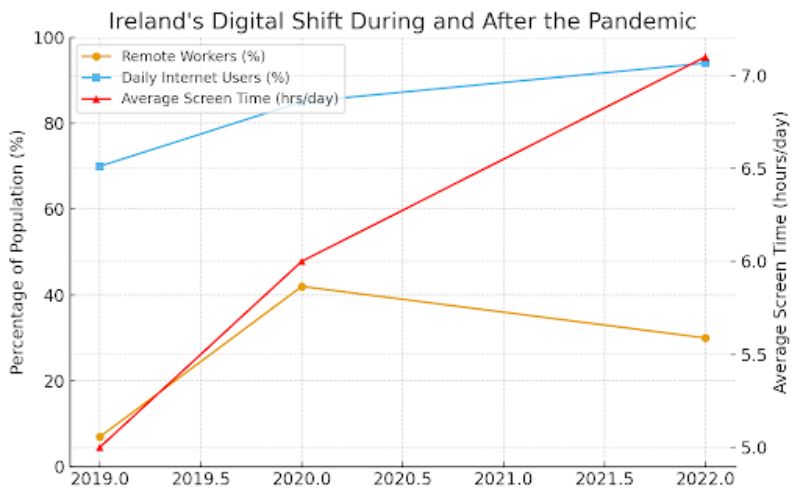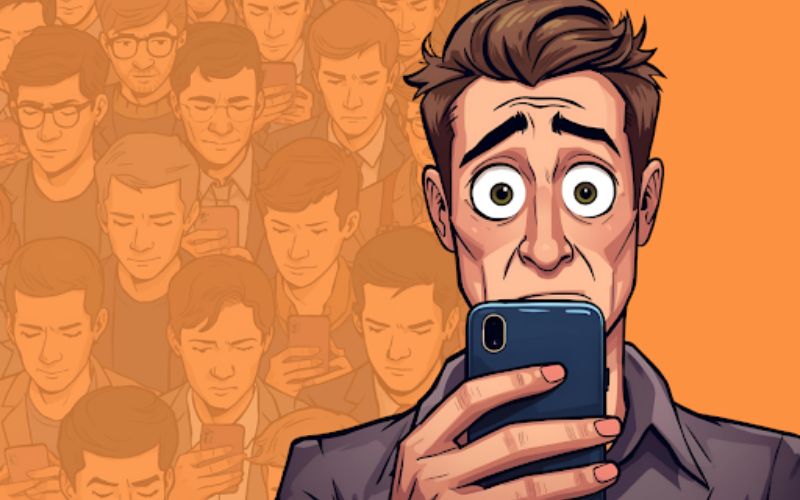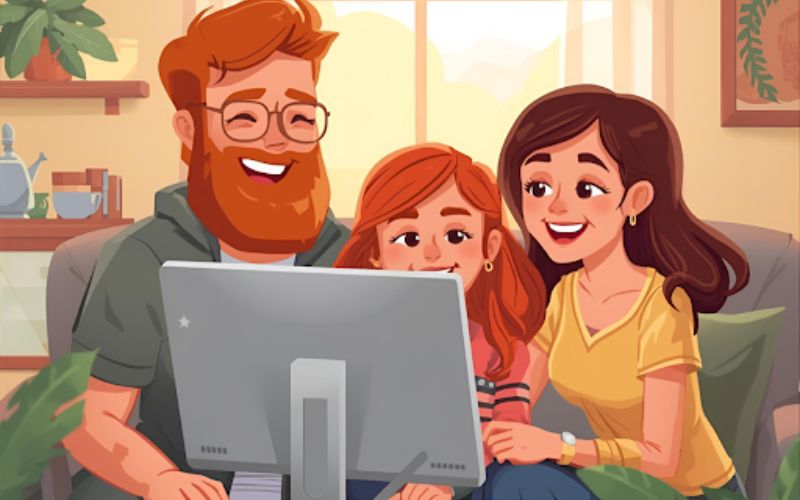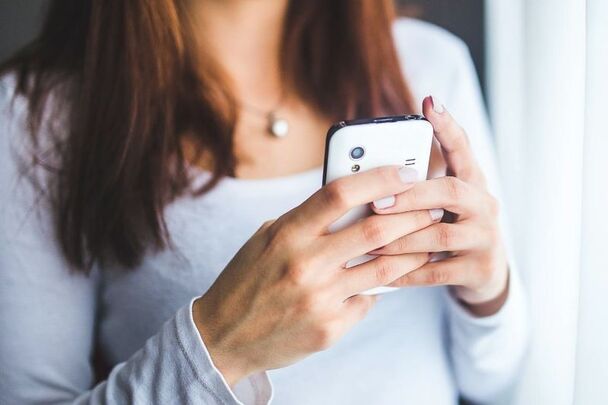It starts innocently enough - a quick scroll before bed, a peek at WhatsApp over breakfast, a few minutes of Instagram on the bus. But before you know it, hours have slipped away. For many in Ireland, this cycle has become a defining feature of post-pandemic life.
Our phones are never far from reach. They connect us, entertain us, and help us work. But they can also leave us restless, sleepless, and more isolated than we care to admit. After COVID-19 rewired how we live, Ireland is waking up to its complicated relationship with the smartphone. The question now is: how do we use these little rectangles more wisely?
Phones, Pandemic, and Permanent Habits
Lockdowns forced Ireland online at record speed. In 2019, just 7% of Irish workers did their jobs remotely. By April 2020, that had skyrocketed to 42%. And it wasn’t only work. From birthday parties on Zoom to online bingo nights in Dublin flats, our devices became lifelines.

Five years on, those habits haven’t disappeared. By 2022, 94% of Irish adults were online every day, with nearly half admitting they were online “all the time or nearly all the time.” Average screen time soared to 7.1 hours a day, a 42% jump since 2019. Put simply: the pandemic didn’t just increase our screen use temporarily - it hardwired it into our daily rhythms.
“I Know I’m Addicted”
Many of us know it too well. Surveys show 70% of Irish adults believe they spend too much time on their phones, with women (74%) and younger adults (18–44) the most concerned. Three-quarters of us reach for the phone the moment we wake up. Half stay up later than planned at night because of “just one more scroll.”

Some describe the cycle bluntly: “I’m completely addicted to my phone,” admitted one Dublin mother in a recent advice column. She and her husband laughed about it, but worried how much time was lost to scrolling instead of connecting. And she’s far from alone.
The problem is widespread enough that psychologists now liken it to addiction. Heavy users describe withdrawal symptoms when they try to cut back: irritability, restlessness, and the irresistible pull to check notifications.
Real-World Consequences
The impacts are real. Sleep is one of the biggest casualties: blue light and constant stimulation keep us wired, leading to shorter, more restless nights. Mental health experts warn that spending three hours or more on social media daily doubles the risk of anxiety or depression, particularly among young people.
Then there are the darker stories. In May 2024, tragedy struck when Ann-Marie O’Gorman, a Dublin mother-of-three, died after being electrocuted by her phone while using it in the bath. While such cases are rare, they illustrate how deeply phones have infiltrated every corner of our lives - even places we know are unsafe.
Phones connect us, yes, but they also distract us from family, interrupt meals, and eat into our downtime. Which is why, in Ireland today, the conversation has shifted from celebration of our tech to reflection on how much is too much.
The Search for Balance
There’s good news, too. Many Irish people are actively looking for ways to cut back or use phones more intentionally. In fact, Ireland ranks among the most active countries in the world for digital detox efforts.
Some are embracing “no phone zones” at the dinner table or buying alarm clocks to banish devices from the bedroom. Others rely on built-in tools like Apple’s Screen Time or Android’s Focus Mode to track pickups and limit social media. Younger generations, ironically, are among those most likely to experiment with cutting back. As one 23-year-old admitted: “During lockdown I was on my phone 14 hours a day. I’m happier now that I’m on it less.”
Interestingly, young Irish adults aren’t turning away from their screens entirely, they’re simply changing what they use them for. A recent Deloitte Ireland survey found that over 80% of 18–34-year-olds now read their news primarily on their smartphones, often through social media or entertainment platforms rather than traditional outlets. It’s a shift that shows how phones can still inform and inspire when used well, whether you’re catching up on the latest headlines or something lighter like catching up on exclusive football updates, like this exclusive interview with Dean Saunders.
But detoxing doesn’t have to mean ditching the smartphone altogether. The key may lie in changing what we use our phones for. Not all screen time is equal, scrolling through a stranger’s TikTok feed is very different from laughing through a shared online game with friends.
From Doomscrolling to Play
During lockdowns, many Irish communities found creative ways to stay connected online. Remember balcony bingo in Dublin? Or the pub quizzes that went virtual? What began as temporary measures often turned into weekly rituals that families and neighbours looked forward to.

Why? Because these activities were social, playful, and uplifting. Anthropologists studying online bingo during COVID noted that people weren’t playing to win — they were playing to feel connected.
That lesson still applies today. Instead of endless doomscrolling, what if we redirected some of our phone time into games and apps that foster connection? Whether it’s a virtual card game with cousins abroad, or a lighthearted round of mobile bingo, these small shifts can transform our relationship with the screen. For anyone craving a fun way to switch off, free tools like this roulette simulator offer a light, interactive break - no sign-up, no stakes, just a moment of play.
Mobile-friendly platforms like pay-by-mobile bingo sites let you join games safely and conveniently - no credit cards, no fuss, just a quick top-up and play. Or, if you’d rather gather the family for a screen-free night, grab a set of free bingo cards to print and play at home.
The Craic, Reclaimed
At its heart, Irish culture has always prized togetherness - the céilí, the pub sing-song, the parish bingo night. While nothing replaces in-person craic, digital tools can complement it when used with intention.
Instead of guilt-tripping ourselves over screen time, perhaps the healthier approach is digital mindfulness: asking whether each use of our phone enriches us or drains us. Does it make us laugh, learn, or connect? Or does it just leave us hollow after an hour?
If the answer is the latter, it might be time to swap the scroll for something more joyful. After all, the smartphone isn’t going anywhere. But how we use it, whether for doomscrolling or craic, is entirely in our hands.
Conclusion
Post-pandemic Ireland is more digital than ever. The statistics are sobering: seven hours a day on screens, constant connectivity, and widespread concern about overuse. Yet there’s also opportunity.
By choosing apps and activities that promote connection - like mobile bingo or online games with friends - we can flip the script. Our phones can stop being a source of stress and start being a source of fun.
So the next time you catch yourself scrolling aimlessly, remember: you could be playing, laughing, and connecting instead. And in a world still finding its balance after COVID, that might be exactly the shift we need.



